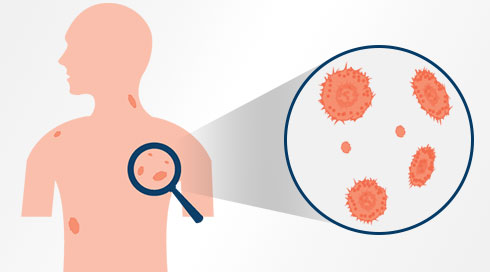The serene rainfall comes as a relief from scorching heat, but, the warm, damp and moist environment is also a host of a number of diseases.
Ringworm is a common fungal infection seen during monsoons. While it can affect people of any ages, it is more common in children. The medical name for ringworm is tinea and it can occur on the scalp, face, neck, hands, nails, arms, legs, and groin areas.

The infection appears as a round, scaly, red patch on the skin. It also causes hair loss, itching, and blister-like lesions in the affected area and it can spread to other parts of the body.
Ringworm is transmissible infection and can pass from one person to another by contact, or by sharing clothes and combs. Ringworm infection can also occur by contact with infected pets like dogs and cats, swimming in the pool, or walking barefoot on soil.
Ringworm can be managed by topical application of creams containing one of the drugs like clotrimazole, miconazole, ketoconazole, terbinafine, and naftifine. These anti-fungal creams are easily available at pharmacies as an over-the-counter medicines. In very few cases, ringworm infections of the scalp and nails do not respond to topical creams and thus the patients are given three months course of the oral tablet of griseofulvin, or terbinafine, itraconazole, or fluconazole.
Applications of natural products like coconut oil, green tea extract, aloe Vera, turmeric, apple vinegar, garlic extract, mustard paste, jojoba oil, and tea tree oil has been found to reduce the spread of infection and prevent itching and scaling of the affected skin.






